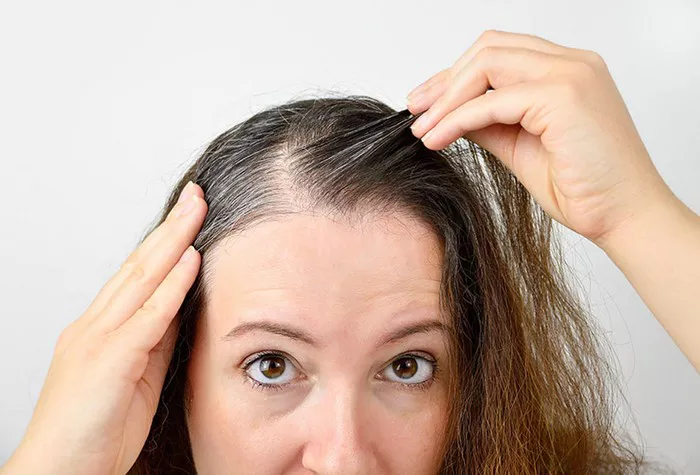Hair rebonding is a popular chemical treatment that helps individuals achieve sleek, straight hair. However, it often comes with the side effect of hair fall, leaving many individuals frustrated and concerned about the health of their locks. If you’ve recently undergone a rebonding procedure and are experiencing hair fall, fret not! In this comprehensive guide, we’ll delve into the causes of post-rebonding hair fall and provide you with effective strategies and tips to prevent further hair loss and maintain healthy, beautiful hair.
Understanding Hair Rebonding and Its Effects
Before we dive into prevention strategies, let’s first understand what hair rebonding entails and why it can lead to hair fall. Hair rebonding is a chemical treatment designed to permanently straighten curly or wavy hair. During the process, the bonds within the hair shaft are broken down using chemical relaxants, followed by the application of a neutralizer to reform the bonds in a straight configuration. While this results in sleek, straight hair, the chemical process can weaken the hair shaft and make it more prone to breakage and hair fall.
Causes of Hair Fall After Rebonding
Several factors contribute to hair fall after rebonding, including:
1. Chemical Damage: The chemicals used during the rebonding process can weaken the hair shaft and lead to breakage and hair fall.
2. Overprocessing: Overlapping the chemical relaxants or leaving them on for too long can cause excessive damage to the hair, resulting in increased hair fall.
3. Improper Aftercare: Inadequate post-rebonding care, such as using harsh hair products or subjecting the hair to heat styling, can further damage the hair and exacerbate hair fall.
4. Genetic Predisposition: Some individuals may be genetically predisposed to experiencing hair fall, which can be exacerbated by the chemical processes involved in rebonding.
Effective Strategies to Prevent Hair Fall After Rebonding
Now that we’ve identified the causes, let’s explore effective strategies to prevent hair fall after undergoing a rebonding procedure:
1. Choose a Reputable Salon: Before undergoing hair rebonding, research and select a reputable salon with experienced professionals who use high-quality products and follow proper procedures to minimize damage to your hair.
2. Consult a Trained Professional: Prior to the procedure, consult with a trained hair care professional who can assess the condition of your hair and recommend the most suitable treatment options to minimize hair fall.
3. Follow Proper Aftercare: After undergoing rebonding, it’s crucial to follow proper aftercare techniques to maintain the health of your hair and prevent further damage. This includes:
- Use Sulfate-Free Shampoos: Choose sulfate-free shampoos and conditioners specifically formulated for chemically treated hair to gently cleanse and moisturize your locks without stripping away natural oils.
- Limit Heat Styling: Minimize the use of heat styling tools such as flat irons and blow dryers, as excessive heat can further weaken the hair shaft and lead to increased hair fall.
- Avoid Tight Hairstyles: Refrain from tying your hair tightly in ponytails or braids, as this can exert tension on the hair follicles and contribute to hair breakage.
- Regular Trimming: Schedule regular hair trims every 6-8 weeks to remove split ends and prevent them from traveling up the hair shaft, causing further damage and hair fall.
- Deep Conditioning Treatments: Incorporate deep conditioning treatments into your hair care routine to nourish and strengthen the hair from within, reducing the risk of breakage and hair fall.
4. Maintain a Healthy Diet: A balanced diet rich in vitamins, minerals, and protein is essential for promoting healthy hair growth and preventing hair fall. Include foods such as leafy greens, fruits, lean proteins, and nuts, which are all beneficial for hair health.
5. Stay Hydrated: Drink an adequate amount of water daily to keep your body and hair hydrated. Dehydration can lead to dry, brittle hair that is more prone to breakage and hair fall.
6. Manage Stress: Chronic stress can contribute to hair fall, so practice stress management techniques such as meditation, yoga, or deep breathing exercises to promote relaxation and reduce hair fall.
7. Avoid Chemical Treatments: Refrain from undergoing additional chemical treatments such as coloring or perming immediately after rebonding, as this can further weaken the hair and increase the risk of hair fall.
Conclusion
Hair fall after rebonding can be a distressing experience, but with proper care and attention, it can be minimized or prevented altogether. By choosing a reputable salon, following proper aftercare techniques, maintaining a healthy lifestyle, and seeking professional guidance when needed, you can protect your hair from damage and enjoy the sleek, straight locks you desire. Remember, patience and consistency are key when it comes to maintaining healthy hair, so stay committed to your hair care routine, and you’ll soon notice a reduction in hair fall and an improvement in the overall health and appearance of your hair.
FAQs
Is it normal to experience hair fall after undergoing a rebonding procedure?
Yes, it is common for individuals to experience some degree of hair fall after rebonding due to the chemical processes involved. However, excessive hair fall may indicate underlying issues that require attention.
How long does hair fall typically last after rebonding?
The duration of hair fall after rebonding can vary depending on factors such as the individual’s hair type, the quality of the rebonding treatment, and the level of aftercare provided. In most cases, hair fall tends to decrease within a few weeks to a couple of months after the procedure.
Can I wash my hair immediately after rebonding?
It is generally recommended to wait at least 48 to 72 hours before washing your hair after undergoing a rebonding procedure. This allows the newly formed bonds to set properly and ensures better results.
What kind of shampoo and conditioner should I use after rebonding to prevent hair fall?
Opt for sulfate-free shampoos and conditioners specifically formulated for chemically treated hair. These products are gentler on the hair and help retain moisture without stripping away essential oils, reducing the risk of hair fall.


